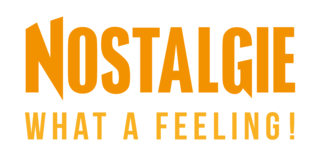The Radio-télévision belge de la Communauté française, shortened to RTBF, is a public service broadcaster delivering radio and television services to the French-speaking Community of Belgium, in Wallonia and Brussels. Its counterpart in the Flemish Community is the Dutch-language VRT, and in the German-speaking Community it is BRF.

The VRT is the national public-service broadcaster for the Flemish Community of Belgium.

De Tijd is a Belgian newspaper that mainly focuses on business and economics. It is printed on salmon pink paper since May 2009, following the example of its colleagues Financial Times, Het Financieele Dagblad, FT Deutschland and many more.

Telenet Group N.V. is the largest provider of cable broadband services in Belgium. Its business comprises the provision of analog and digital cable television, fixed and mobile telephone services, primarily to residential customers in Flanders and Brussels. In addition, Telenet offers services to business customers all across Belgium and in Luxembourg under its brand Telenet Solutions.

DPG Media Group is a Belgian media company also active in the Netherlands and Denmark. The exact ownership structure is not clear; it is believed that the group is mainly owned by the Belgian Van Thillo family. The company employs about 6,000 people.
Mediafin is a Belgian media group. The company was established in 2005 when it was bought by De Persgroep and Rossel. Its name was switched from Publisher Tijd to Mediafin. De Persgroep and Rossel hold a fifty percent stake in Mediafin.
Groupe Rossel is a major media group in Brussels and Wallonia, the French-speaking part of Belgium. The daily newspaper Le Soir is one of their main and most successful publications. The other daily the company owns is the subsidiary SudPresse, which publishes daily newspapers including La Capitale and La Meuse. Together with De Persgroep, Rossel purchased the two broadsheets De Tijd and L'Echo, and merged them into the new Mediafin. Rossel also owns several French newspapers, including La Voix du Nord. Rossel led a consortium that acquired the French magazines Psychologies and Première.
Mediahuis is a European multinational newspaper and magazine publishing, distribution, printing, television, radio and online media company founded in 2014 with assets in Belgium, the Netherlands, Ireland, Luxembourg and Germany. Mediahuis publishes daily newspaper titles in Belgium, the Netherlands and Ireland as well as regional titles, and is involved in broadcasting a number of Dutch and French language TV and radio stations.
Wouter Vandenhaute is a Belgian Entrepreneur, Television producer and former sports-journalist. He is currently managing director of the Belgian media holding De Vijver, which includes the TV production company Woestijnvis and TV channel VIER. Vandenhaute married VRT sports journalist Catherine Van Eylen.
TV Vlaanderen is a digital satellite television and terrestrial television service provider for the Flanders region in Belgium.

La Une is a Belgian national television channel, owned and operated by the French-language public-service broadcasting organization RTBF. La Une is the equivalent of Flemish station VRT 1, of the Flemish broadcaster VRT.
Television in Belgium was introduced in 1953 and began with one channel each in Dutch and French. The country is heavily cabled, with 93% of households watching television through cable as of 2003.

RTL Club is a French-language Belgian television channel based in Brussels and owned by DPG Media and Groupe Rossel, it was originally owned by RTL Group until 31 March 2022. The two principals countries of transmission are Belgium and Luxembourg.

Nostalgie Vlaanderen(Nostalgie Flanders) is a private Belgian radio station broadcasting in Flanders and Brussels but can also be heard in some parts of Wallonia, and is dedicated to mainly music of the 1970s, 1980s and 1990s. Nostalgie Flanders is created on 20 March 2008, and is owned by Concentra Group, Corelio NV and the NRJ Group.
Bel RTL is a commercial radio network broadcasting in Brussels and Wallonia. The station is owned by the Radio H holding company, which is part of the Belgium-based RTL Belgium. It is now owned by DPG Media and Groupe Rossel since 31 March 2022.
Radio Contact is a Belgian commercial music radio station created in 1980, broadcasting in French in the French Community of Belgium.

RTL Plug is a general Belgian French speaking commercial television chain with international presence and targeting adolescents and young people. The station is particularly popular in francophone parts of Belgium, but also somewhat in Flanders, the Dutch-speaking region of Belgium as well.

Roularta Media Group is a publishing and broadcasting company based in Roeselare, Belgium. Its operations were started in 1954.
Vitaya is a former women's magazine published in Belgium which was founded in 2001. The magazine was owned by De Persgroep. In February 2017, Vitaya was merged with another Persgroep title, Goed Gevoel.









